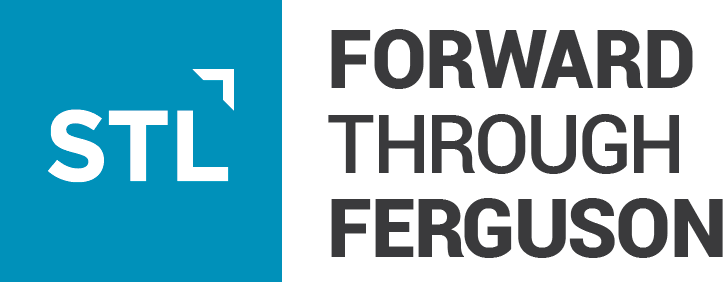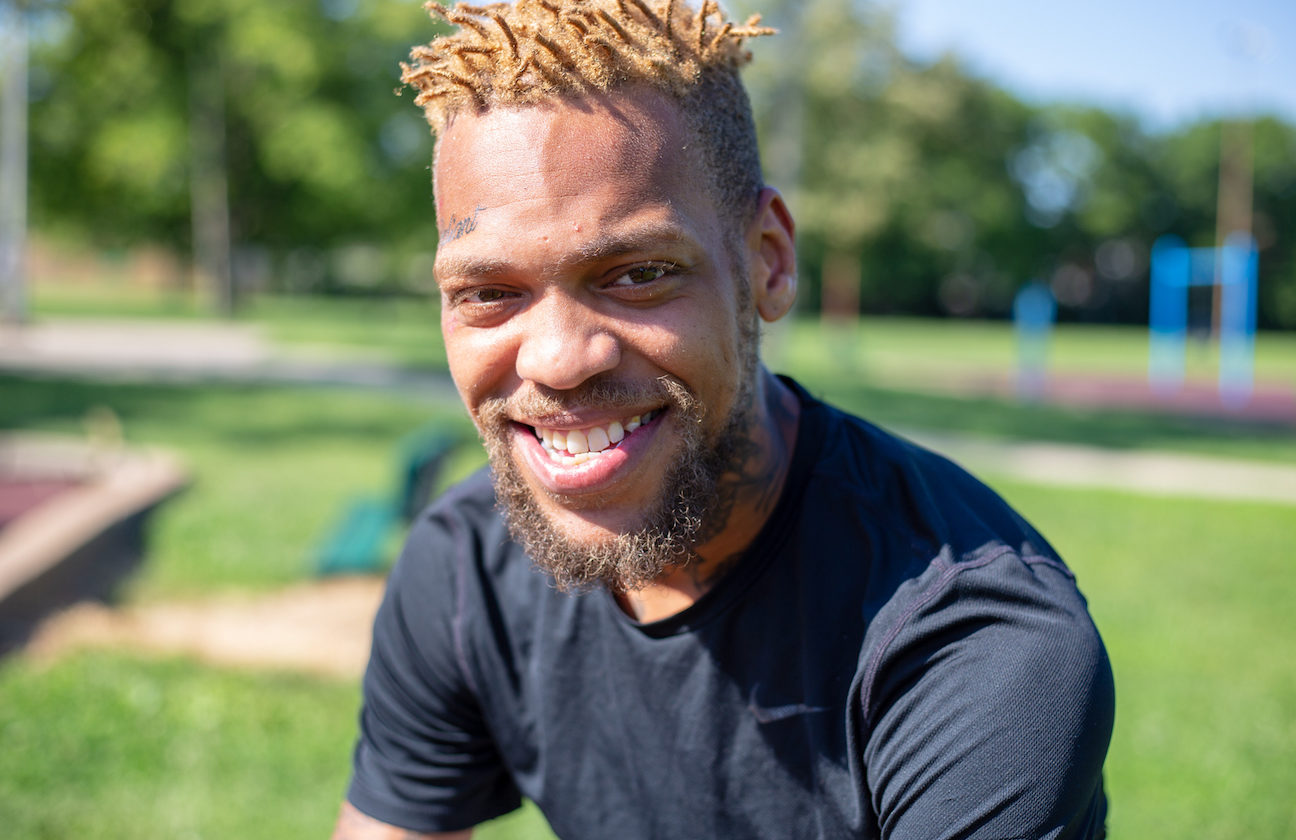Part of the #FiveYearsLater #STL2039 series with Humans of St. Louis
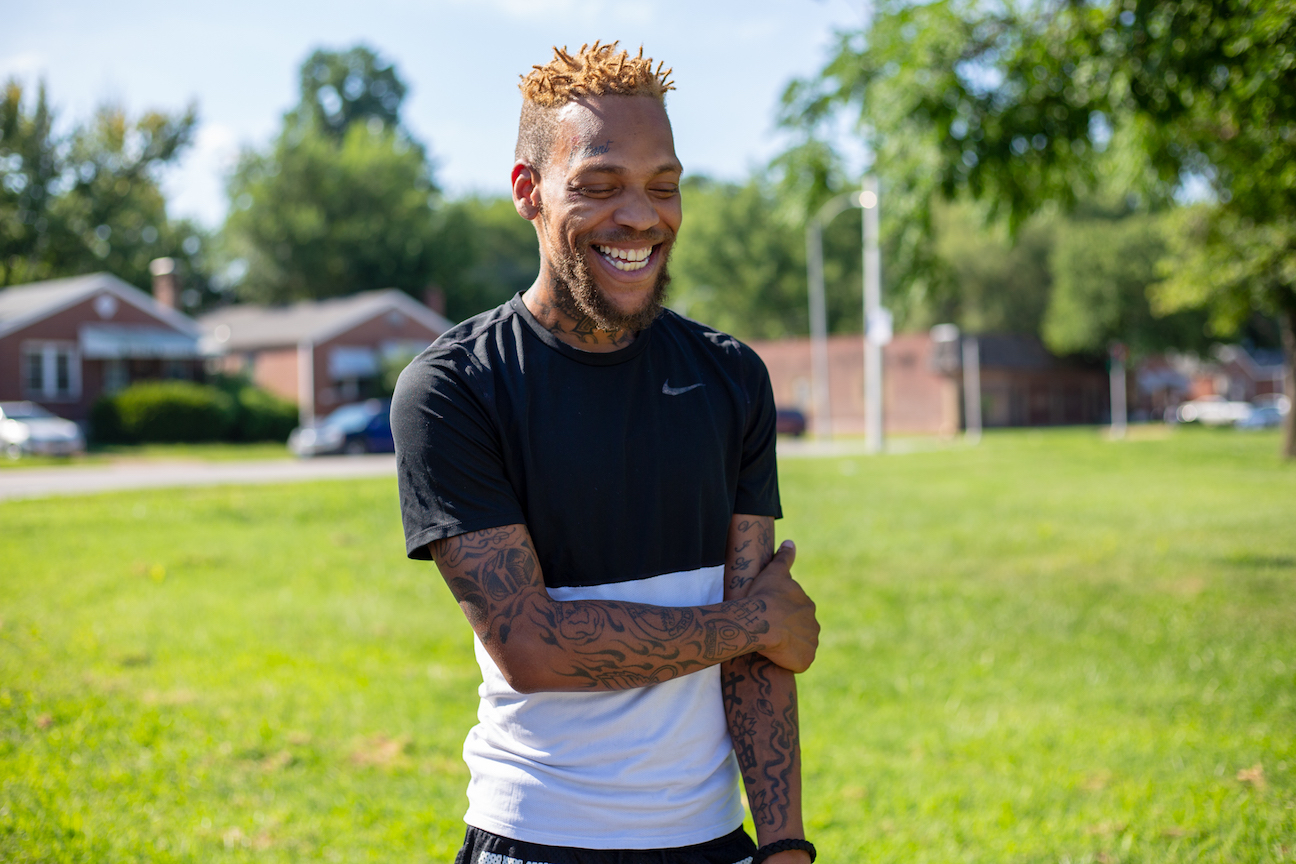
Ned Alexander, Photostory by Colleen O’Connell Smyth/Humans of St. Louis
I stayed in Canfield in the first and second grade. I have memories walking around there. I was a wild kid. I got in trouble. I did stupid stuff like kids do. Mike Brown could have been me. There were people whose lives were really affected by what happened to him. I remember them being on edge, like, ‘You know the Ferguson police are hot.’ People getting shot by the police has been going on since the 60s. Our parents haven’t outseen the stuff that we’re seeing now.
When I went out there on August 9th, I’d never seen that many Black people come together. I don’t think anybody in my generation had. There was a whole different spirit. You could walk up to almost anybody, open up your arms, and ask for a hug. And out of the kindness of their hearts, they would give it to you. They understood the struggle and the pain we were going through.
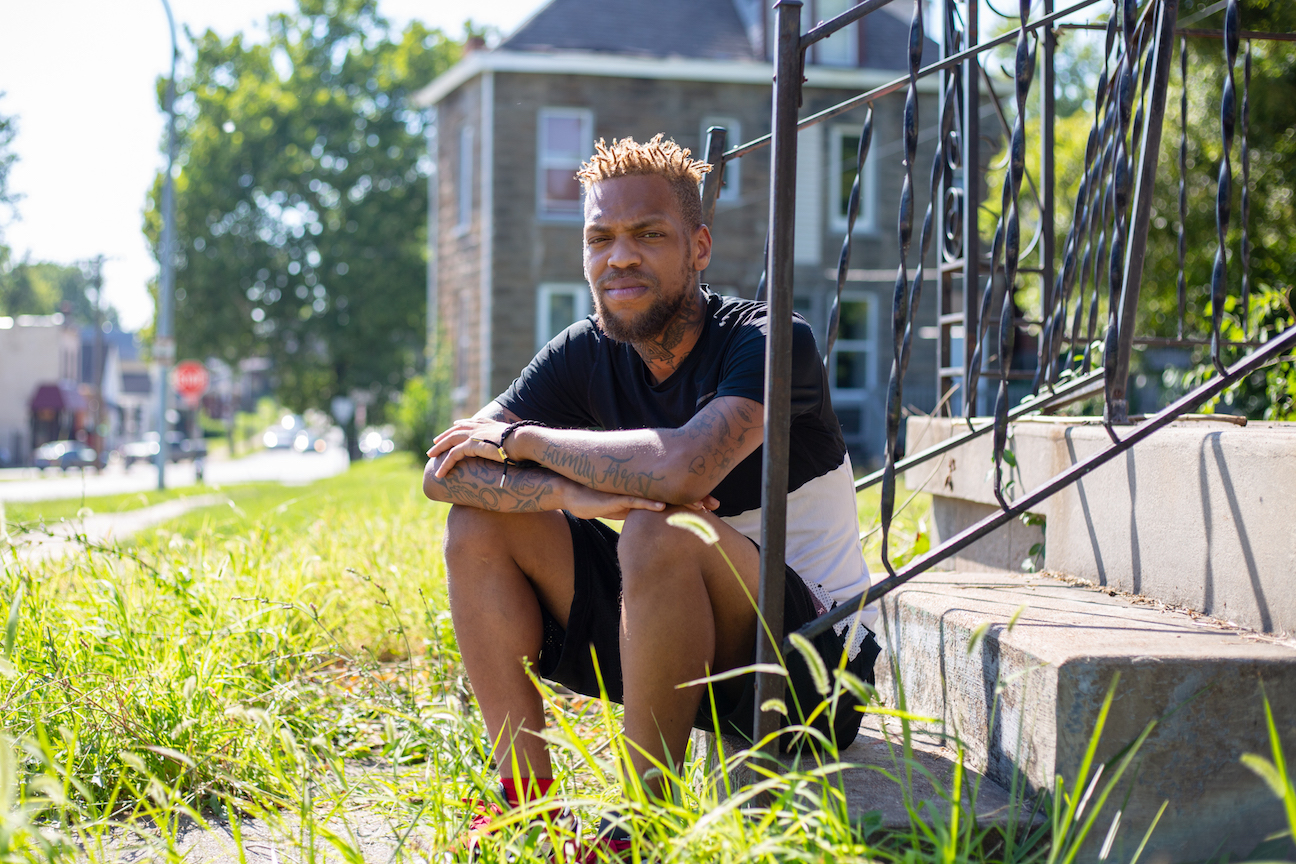
I had to do something. I said, ‘I’m staying out here until he gets indicted. Who’s going to stay out here with me?’ The police had barricaded us into a corner with M16s. A few people responded, ‘We’re gonna stay here with you.’ It went from three people to five, to nine, and then 10. We had people steadily coming in and out, but there was always the same core 10. We called ourselves the Lost Voices for our ancestors.
We were fighting for all of the lost voices because there are so many people out here that feel like their voices are lost. But they’re not really lost. They just need a platform to be amplified.
People were pressuring us to come up with a name, asking us, ‘Where are you guys come from?’ It was just 10 kids. We didn’t know each other from a can of paint, but we all knew what we wanted to change. We came together and decided, ‘This is what we’re going to do.’ We made sure each other was okay. We made sure everyone ate and had the bare necessities. We were fighting for all of the lost voices because there are so many people out here that feel like their voices are lost. But they’re not really lost. They just need a platform to be amplified.
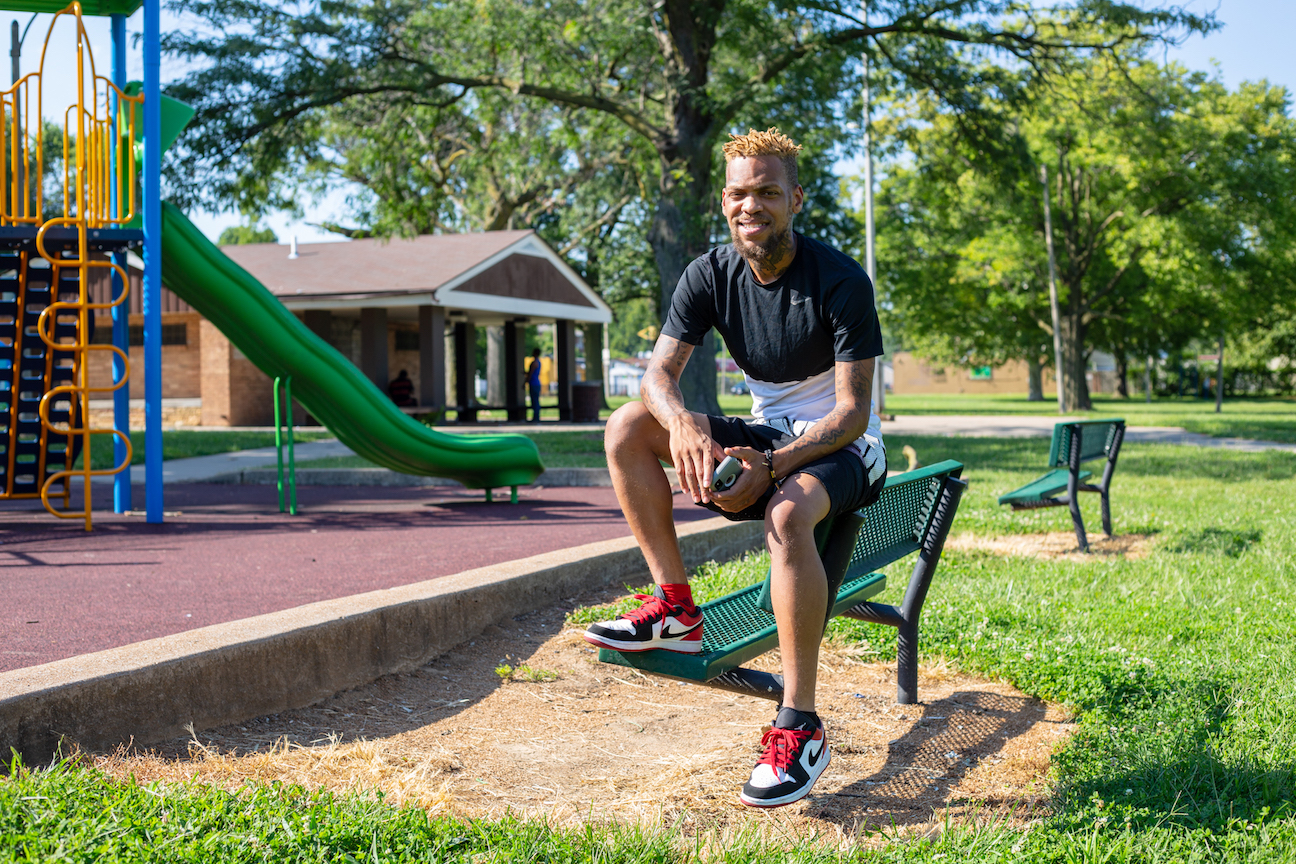
The Lost Voices became my brothers and sisters. We camped by the furniture store on West Florissant for a month. When they kicked us out, we went down to Red’s The One and Only BBQ and then behind the new Urban League’s Ferguson Community Empowerment Center. Every day we would make sure we were protesting at a certain time, making ourselves known on West Florissant so people would know that the protests were not dead. If people protested like they did that first week for an entire month, the President would have had to come down there and talk to somebody. The country had never seen anything like that. I have family that stays in LA, and I remember the riots there when I was a child. Seeing those and then doing this, it was on a whole other scale, like playing with a 10-piece and a 50-piece LEGO set. Rodney King was beaten. Michael Brown’s life was sacrificed.
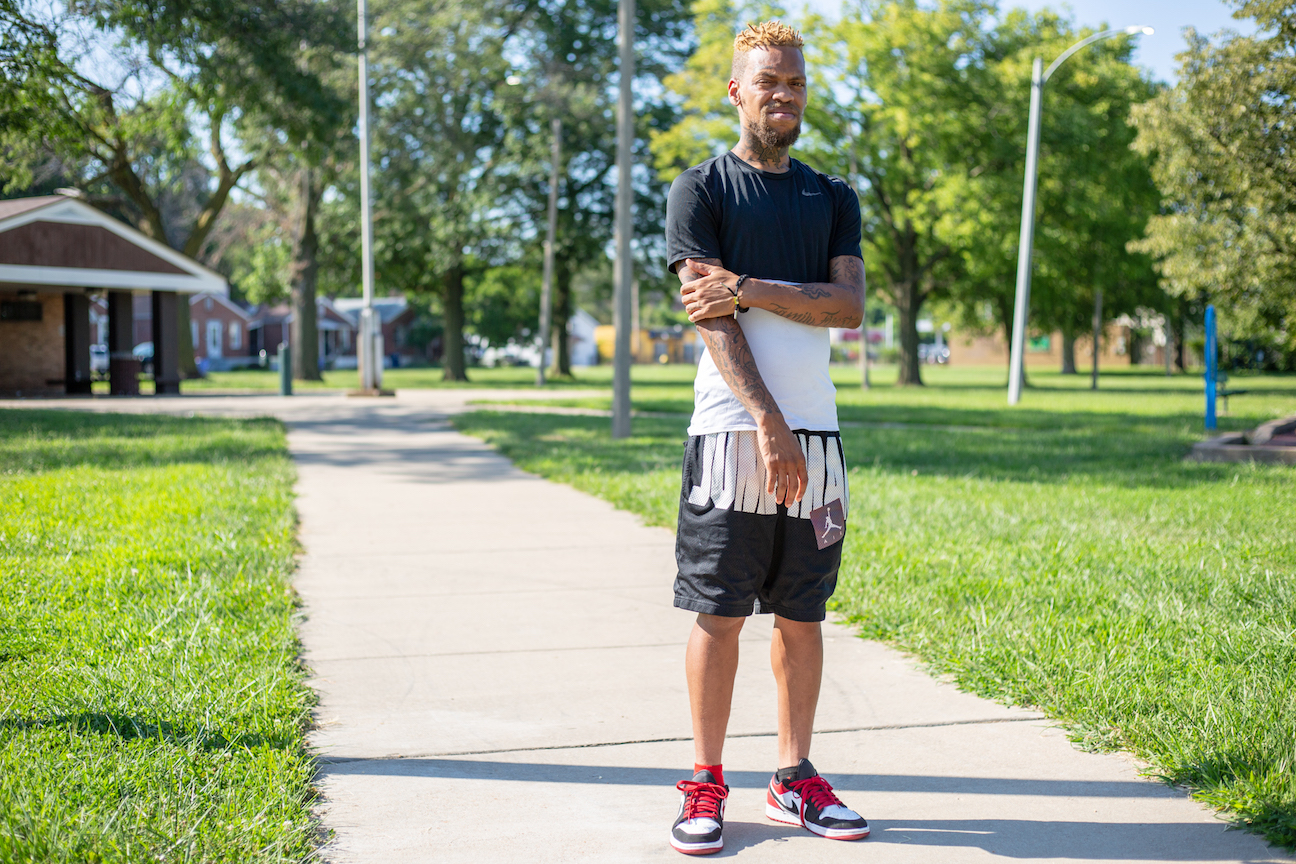
A lot of people got hurt because some tore everything up. I didn’t agree with it, but I didn’t disagree with it either. They were living in shit conditions. They were treated like an animal living in the zoo. Onlookers aren’t caring about what’s on the other side. As long as the animal’s tame behind the glass, those watching are fine. But when the door opens, it’s a different story. Michael Brown’s death opened that door. Now we have to deal with these problems.
I couldn’t process everything that was going on. My grandmother had passed at the time, and she was the person who taught me everything: how to carry myself, how to cut grass, to cook, and wash dishes – all of the essentials that I needed to know. Even though I grew up with a mother and a father, she molded me into the person that I am today.
Before she passed, she told me, ‘You are doing this work because I can’t. I can’t walk out there tomorrow with you. You’ve got to do it now. It’s your turn.
I got a lot from her and listened to the stories of her life. Her parents were sharecroppers, and my grandfather couldn’t read because he had to work when he was 10 years old. I saw the impact those things had on them. They were happy that I can read and graduated from high school. After she died, everything became more meaningful to me. Before she passed, she told me, ‘You are doing this work because I can’t. I can’t walk out there tomorrow with you. You’ve got to do it now. It’s your turn.
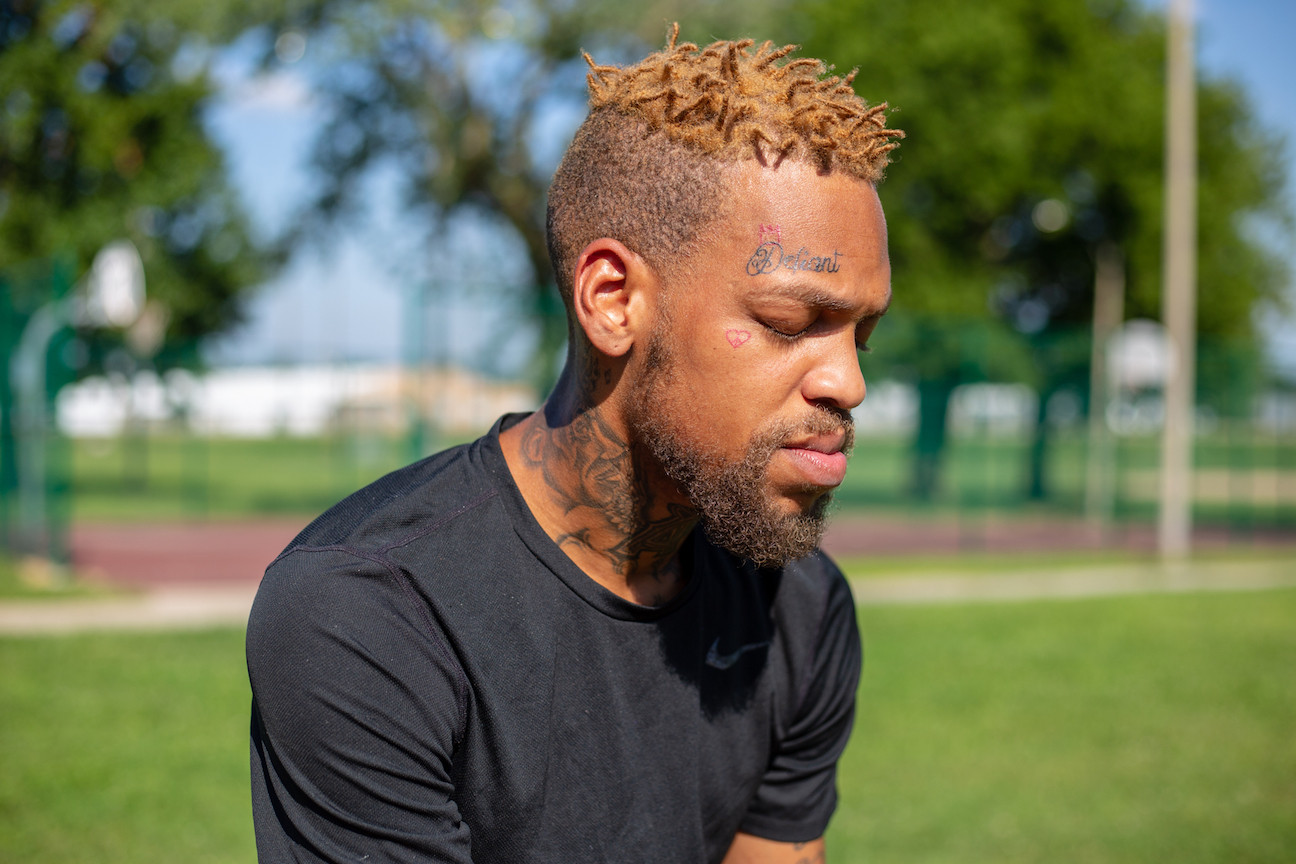
At the time, people didn’t know what to do. We were just trying to do what we thought was right. There was a curfew, and stores were closing. We started getting people coming from their houses sending their grandsons. They told us, ‘We can’t get any food.’ We had water, a little bit of toiletries, and other things people had donated. We took them, put them into goodie bags, and sent them home with people.
I remember some of the craziest things from staying out there. We would be up all night. Police would harass us and say, ‘Go home. You kids are homeless. You need to go deal with your shit.’ At the same time, I understood, ‘Yeah, we are making you work extra hours. We are taking you away from your families. I understand your discomfort. But you should understand mine. I don’t want to be out here sleeping on this hard concrete.’
I had a whole house that I could go back home to. I lost a job and my apartment staying outside. I got my utilities disconnection notice. My cousin brought it out to me, like, ‘Hey man, you’re about to get put out of your apartment.’ Still, I was out here doing the work trying to hit the ground and make some change. We started getting followers asking, ‘Why are these kids still out here on West Florissant?’ Once they realized, they’d say, ‘When I get off of work, I’m going to bring you all some hot food.’ The community gradually started embracing us. It made me feel like I could do this work forever. As long as we could eat, I was fine.
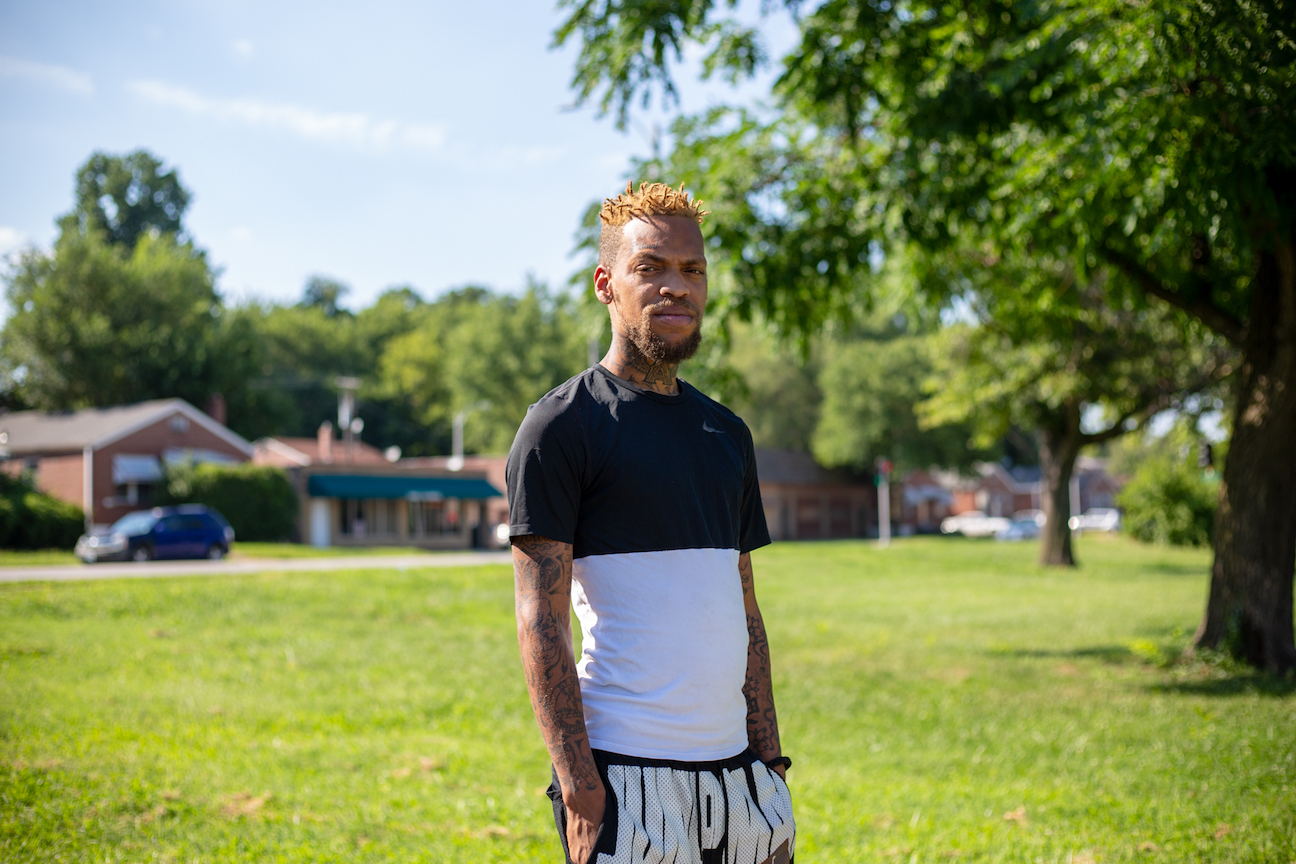
We wanted to see Darren Wilson get indicted. When that didn’t happen, we were looking for different ways to try to make change. I started mentoring kids through a basketball program off of Chambers Road. There were 60 kids that would come every day just to play. There was nothing else to do in the area. When they came in, I had them read. I made classes for them so they could have five or six hours when they didn’t have to worry about outside influences. It got to the point where I had kids as young as seven to as old as 17. They would go before it even opened and be calling me, ‘You going to open the gym today?’ It helped me because these kids were depending on me to be there. We were trying to help the community, but I stopped because there were so many break-ins and the building got shut down. After it closed, some people had a party there. Two of the students I was mentoring ended up getting shot. I was so upset. I had shown them that I could put up the numbers, that I could get kids to come and sign in and do all of the things I was being asked to do in order to keep them safe. But they snatched it away from me, and then that happened.
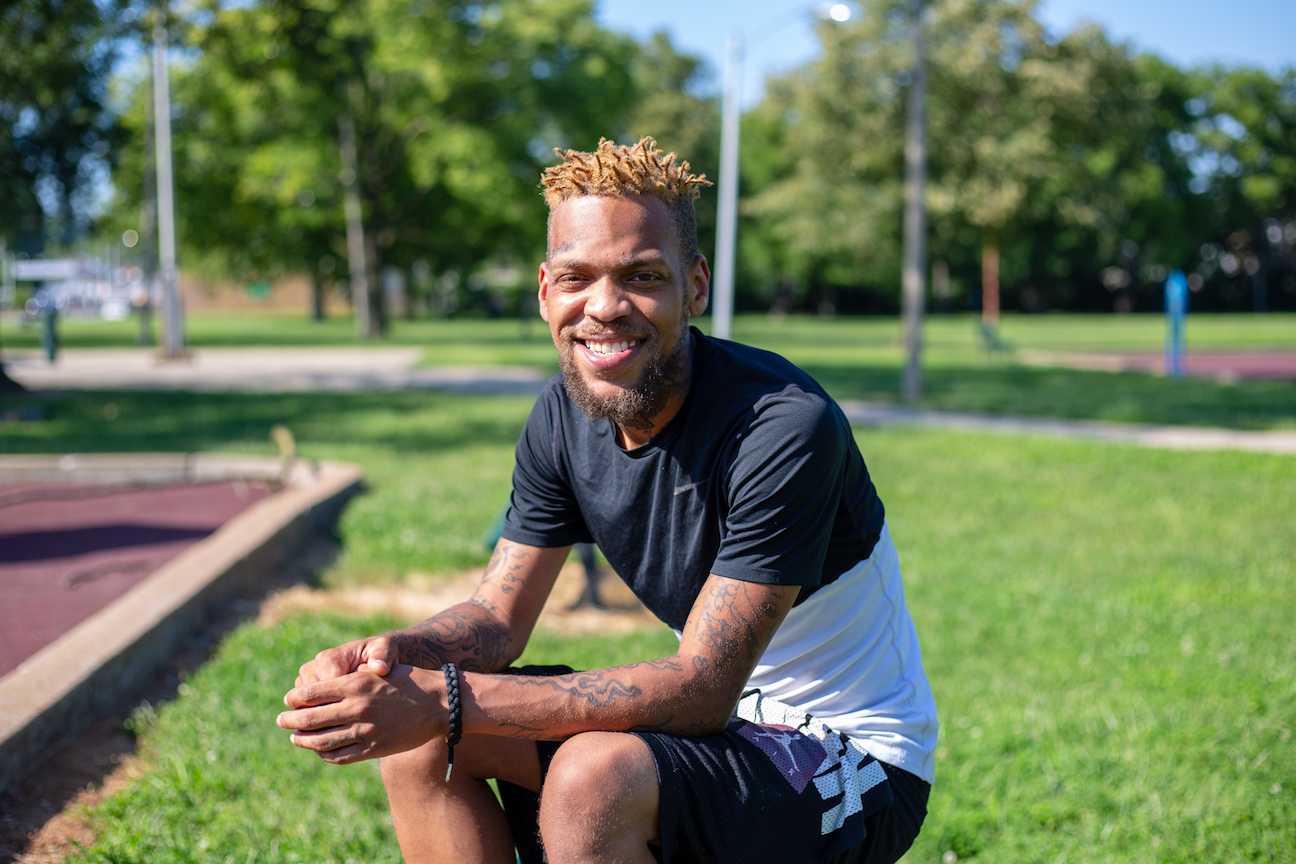
I was never a reader until after Ferguson. It helped me start to understand things. I read so much, and now I put it on my kids. I bring them to the library, and they love to read. I read a lot of mental health books because I’ve been around a lot of toxic energy. With Lost Voices, I thought I could change a lot. We did, but it wasn’t enough. I think about that when I look at my kids. I want them to have opportunity. ‘History repeats itself. Opportunities don’t.’ I read that in a book, and it’s stuck with me.
With Lost Voices, I thought I could change a lot. We did, but it wasn’t enough. I think about that when I look at my kids. I want them to have opportunity. ‘History repeats itself. Opportunities don’t.’ I read that in a book, and it’s stuck with me.
I feel like I missed out on a lot of opportunities. When everybody was worried about graduating high school, I was worried about where I was going to live. My senior year I stayed in a shelter. I couldn’t worry about what college I was applying for or take my SATs. I was thinking about my mom being stressed out because we didn’t have anywhere to go. I was wondering if my clothes were going to be put outside of the house when I got home. I was playing basketball, baseball, and running track. I had a job, and I did an internship at the radio station. I was doing everything my parents told me to do to be successful. But with the cards I was dealt, it was impossible. I want something different for my kids. I had to settle for trade school, which is not a bad thing. Everybody has to have a trade. But I don’t know what I would have turned out to be if I would’ve had the chance to go to college.
